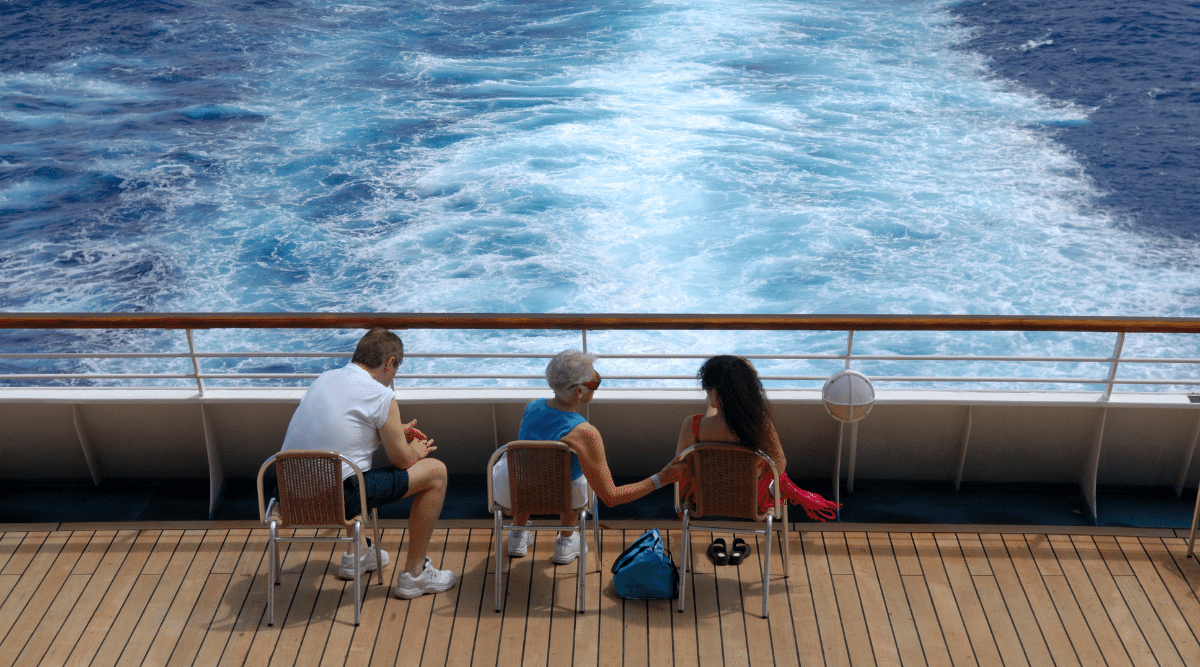Given all of the safety precautions in place, it’s hard to imagine that someone could fall overboard while on a giant cruise ship. Yet, it happens. Surprisingly, dozens of people fall overboard each year (not counting the pandemic-year suspension).
So, exactly how does someone fall off a cruise ship? Let’s explore the ways.
A voyage on the seven seas on a big vessel may not appear to be as dangerous as it once was back in the days of schooners and pirates. Nevertheless, falling into the waves from a ship’s deck is something you’ll want to avoid at all costs.
Reasonable Expectations
Cruise ships make it possible to have fun, unwind, and go to intriguing new destinations.
Considering the seemingly limitless vastness of the ocean and seas, passengers have a realistic expectation of safety from cruise lines and travel companies. Even though it is extremely rare, awful things do happen. (Find out more about cruise mistakes you can avoid.)
Going overboard from a boat is regarded as a life-threatening condition, and the phrase “man overboard” is frequently used to describe someone who requires rescue. Instances of cruise ship passengers falling overboard are exceptionally rare, according to statistics.
As shown in a 2017 survey published by the Cruise Lines International Association (CLIA), a trade body for the tourism sector, only approximately 19 people each year fall into the ocean from cruise ships. But why does it happen?
How Does Someone Fall Overboard From A Cruise Ship?
Since cruise ships are normally reinforced with high railings to keep people from falling, a man overboard situation is highly unlikely unless the individual willfully climbs onto the railings or somewhere else they should never have been.
Modern cruise ships typically have railings that are at least 45 inches high on cabin balconies and on open-air decks. Thus, true accidental falls are rare.
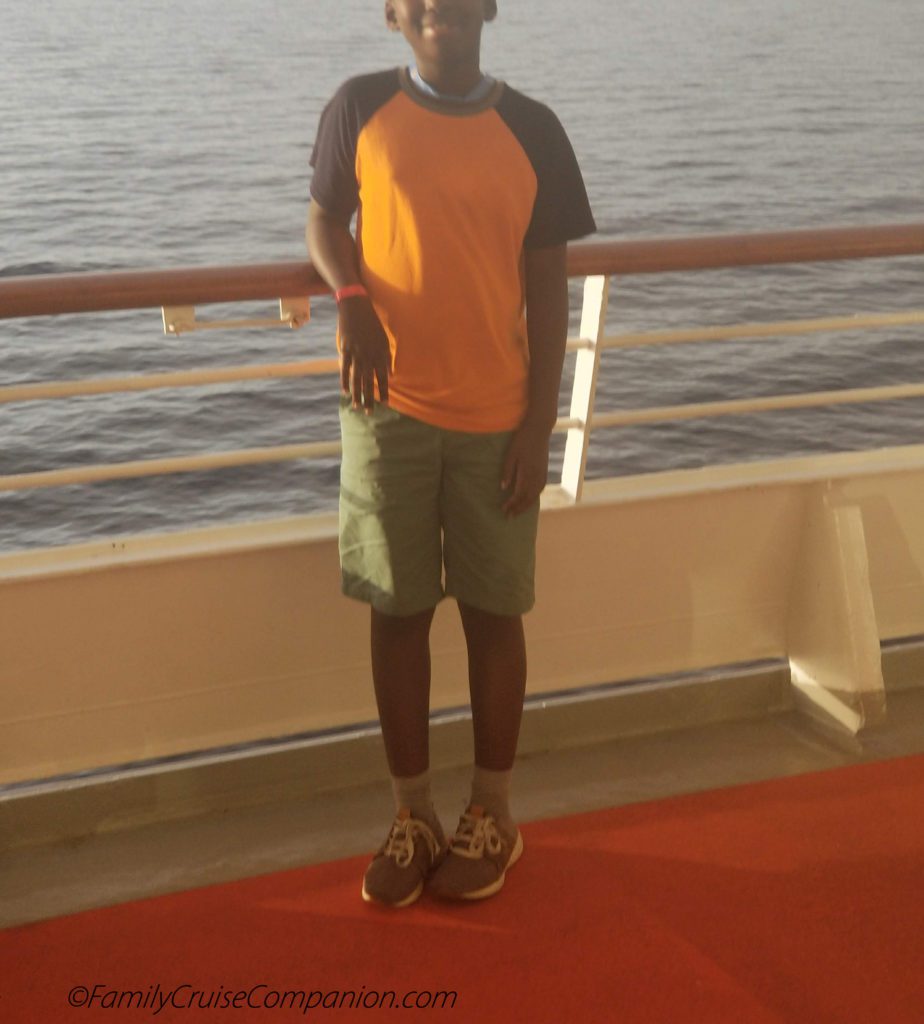
In truth, studies have revealed that the majority of persons who “fall” off ships do so deliberately.
Deaths on Cruise Ships
According to a research study on the cause of cruise ship deaths published in the International Journal of Travel Medicine and Global Health, there were 623 reported deaths between 2000 and 2019.
Cardiovascular events, like heart attacks and strokes, were one of the most common causes of death on cruise ships. As for falls, those accounted for 15% of passenger deaths. This includes falls onto lower decks as well as falls overboard.
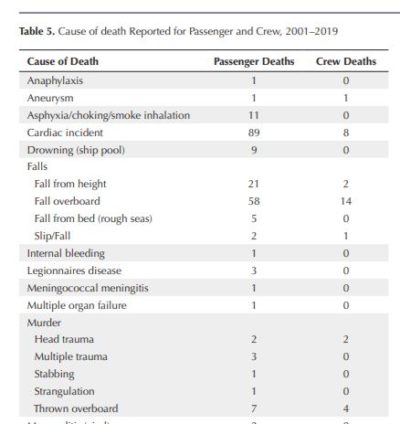
Notably, the research attributed 13% of passenger deaths to suicide. And, 79% of those suicides involved people jumping overboard. (Although drowning incidents are rare, they do occur. Check out our post on water safety for kids.)
Overboard occurrences are most usually caused by drinking and are either careless or intentional. According to historical FBI data, 42% of cases where people “went missing” on a cruise ship (and are presumed to have gone overboard) involved alcohol. The 2020 research confirms that alcohol consumption plays an outsized role in passenger deaths on cruise ships.
Bartenders on cruise ships are taught to identify when somebody has had far too much drink and, just like on land, will refuse to serve them further drinks.
Even if a passenger falls overboard, crew members can circle the ship to save them, provided they are told in a timely manner.
Suicide at sea is a rare occurrence, yet it does happen from time to time. It usually happens as a result of a passenger jumping from a top deck or the balcony inside their cabin. The majority of occurrences happen at night.

The chances of dying aboard a cruise ship are approximately 1 in 6.25 million. Driving a car is far riskier, with a 1 in 645 chance of being killed in a collision. (Learn what happens when someone dies on a cruise ship.)
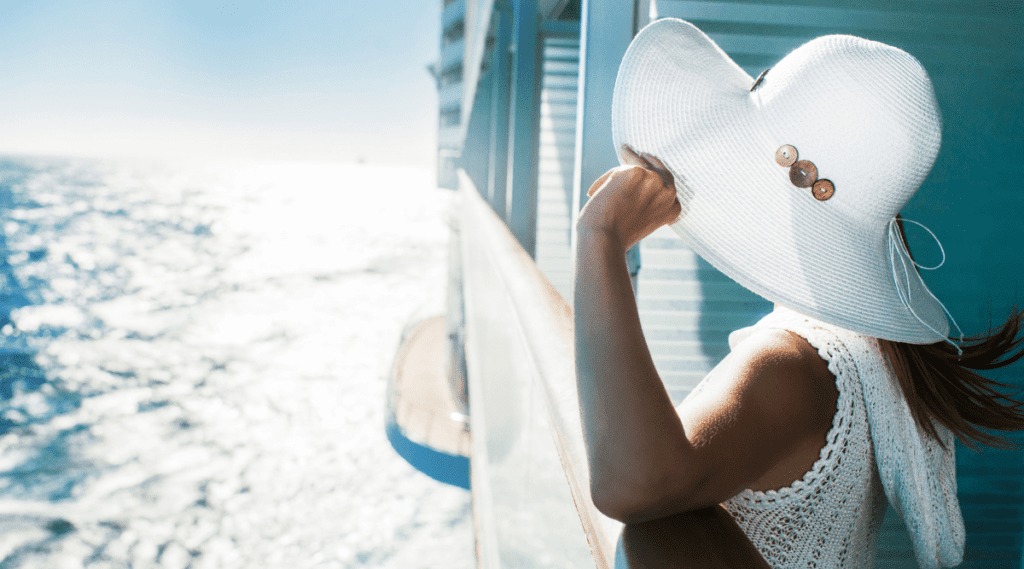
What Happens If Someone Falls Overboard?
Every ship’s crew practices what to do if someone goes overboard on a regular basis. The very first essential step is to sound the alarm.
You may have heard that cruise ships typically have carefully located cameras to keep an eye on high-risk areas where passengers are more susceptible to leaping or falling into the water. While most modern cruise ships do have such camera systems, their primary function is to record and document. They don’t automatically trigger an alarm if they record someone going overboard.
Someone must actually witness a person going overboard to trigger any alarm systems and protocols. This might be other passengers or crew members, who will immediately cry “Man overboard!” to call attention to the matter.
Somebody will then toss any accessible flotation device into the ocean to assist you in staying afloat, and efforts will be made to alert the bridge as quickly as possible.
To pinpoint the exact location of the mishap, the navigational system’s “Man Overboard” icon will be activated.
A life ring with bright orange mist will be launched from a bridge wing, and the ship’s siren will be heard with three sustained blasts lasting a few seconds each.
The blasts help to inform everybody aboard the ship, as well as other ships in the area, about the emergency. They will also be powerful enough for you to hear, if only to reassure you that the vessel is returning for you.
Just after immediate responses are completed, the entire focus changes to recalling the vessel to the place of the fall and commencing the rescue attempt. Depending on the length of the search, the Coast Guard may take over.
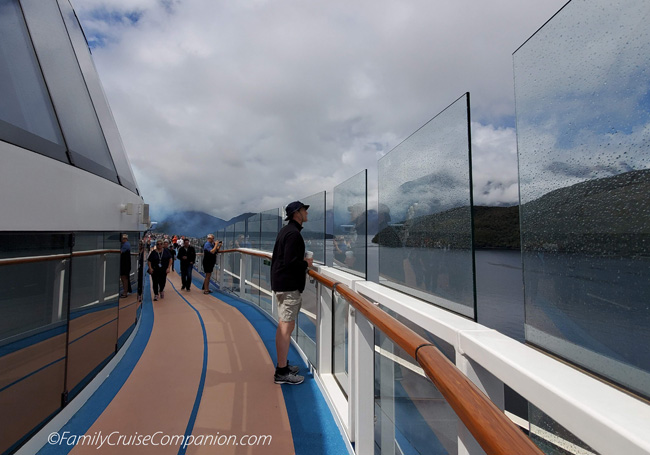
Can Someone Survive Falling Off A Cruise Ship?
Although it is unlikely that one can survive a fall from a cruise ship, there are lucky folks who do survive. It all depends on the situation at hand, and various different factors will influence the survival rate of the person overboard.
Some of these factors include whether the individual was hurt by a collision with the sea or a section of the boat on the way down, and also how fast the passenger can be saved by a crew member, coastguard, or passing ship.
A person who falls overboard is often dead by the time he or they reaches the ocean. Many large cruise ships rise 200 feet above the waterline or more. Few people can survive the impact of such a fall. And, of those that do, some would likely be knocked unconscious and drowned.
Winds and adverse weather conditions have a part to play, too; if the waters are turbulent, it is hard for a person to paddle and even more difficult for emergency personnel to locate them in the sea.
The longer someone stays in the water, the less likely they are to be successfully rescued. In the absence of a flotation device, trying to stay afloat requires physical exercise, and dehydration poses a significant risk. This can lead to exhaustion and then drowning.
Additional variables include the temperature of the ocean; hypothermia can develop when the sea temperature falls below 70 degrees Fahrenheit.
If You Witness a Fall
If you’re unlucky enough to witness someone else falling overboard, you must alert a crew member as soon as possible. It doesn’t matter which crew member you inform, from the bartender to the maid, just shout and raise the alarm as soon as you can.
If you can throw something in the water to mark the spot, like a life preserver, do so. Otherwise, make a mental note of where you saw the passenger falling into the water and write down the time it happened as well as any other details you remember, such as what the person looked like and what they were wearing.
This information can be used to help the rescue mission and increase the passenger’s chances of survival.
Closing Thoughts
Falling off a cruise ship is a rare but possible event. Cruise lines take passenger safety very seriously and have implemented numerous safety measures to prevent accidents. Nevertheless, the potential risks remain. In terms of your own safety, stay aware of your surroundings and follow the rules to prevent accidents.

